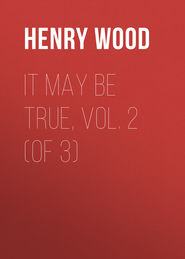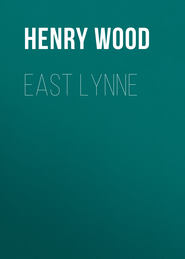По всем вопросам обращайтесь на: info@litportal.ru
(©) 2003-2024.
✖
Johnny Ludlow, Second Series
Настройки чтения
Размер шрифта
Высота строк
Поля
But a curious circumstance occurred, connected with Thomas Rymer. And, to me, his behaviour had seemed almost curious throughout. Not at that first interview—as I said, he was open, and, so to say, indifferent then; but soon afterwards his manner changed.
On the day following that interview, the Squire, who was very restless over it, wanting the thing to come to light in no time, sent me again to Rymer’s, to know if he had learned any news. Rymer said he had not; and his manner was just what it had been the past day. I could have staked my life, if necessary, that the man believed what he said—that news must be looked for elsewhere, not at Timberdale. I am sure that he thought it impossible that the theft could have been effected after the letters came into his hands. But some days later on, when the whole matter had been disclosed, and the public knew as much about it as we did, the Squire, well of his cold, thought he would have a talk with Rymer himself, went over, and took me with him.
I shall not forget it. In Rymer’s window, the chemical side, there was a picture of a bullock eating up some newly-invented cattle-food and growing fat upon it. It caught the Squire’s eye. Whilst he stopped to read the advertisement, I went in. The moment Rymer saw me—his daughter called to him to come out of the parlour where he was at dinner—his face turned first red, and then as pale as death.
“Mr. Todhetley thought he would like to come and see you, Mr. Rymer.”
“Yes, yes,” he said, in an agitated sort of tone, and then he stooped to put some jars closer together under the counter; but I thought he knew how white he was, and wanted to hide it.
When the Squire came in, asking first of all about the new cattle-food, he noticed nothing. Rymer was very nearly himself then, and said he had taken the agency, and old Massock had ordered some of it.
Then they talked about the note. Rymer’s tone was quite different from what it had been before; though whether I should have noticed it but for his white face I can hardly tell. That had made me notice him. He spoke in a low, timid voice, saying no more than he was obliged to say, as if the subject frightened him. One thing I saw—that his hands trembled. Some camomile blows lay on a white paper on the counter, and he began doing them up with shaky fingers.
Was his wife given to eavesdropping? I should have thought not—she was too independent for it. But there she was, standing just within the little parlour, and certainly listening. The Squire caught sight of her gown, and called out, “How d’ye do, Mrs. Rymer?” upon which she came forward. There was a scared look on her face also, as if its impudence had shrunk out of it. She did not stay an instant—just answered the Squire, and went away again.
“We must come to the bottom of the business somehow, you know, Rymer,” concluded the Squire, as he was leaving. “It would never do to let the thief get off. What I should think is, that it must be the same fellow who robbed the butcher–”
“No, no,” hastily interrupted Rymer.
“No! One of the gang, then. Any way, you’ll help us all you can. I should like to bring the lot to trial. If you get to learn anything, send me word at once.”
Rymer answered “Yes,” and attended us to the door. Then the Squire went back to the cattle-food; but we got away at last.
“Thomas Rymer breaks, Johnny, I think. He doesn’t seem in spirits somehow. It’s hard for a man to be in a shop all day long, from year’s end to year’s end, and never have an hour’s holiday.”
Ever after this, when the affair was spoken of with Rymer, he showed more or less the same sort of shrinking—as if the subject gave him some terrible pain. Nobody but myself noticed it; and I only because I looked out for it. I believe he saw I thought something; for when he caught my eye, as he did more than once, his own fell.
But some curious circumstances connected with him have to be told yet. One summer evening, when it was getting towards dusk, he came over to Crabb Cot to see the Squire. Very much to the pater’s surprise, Rymer put a five-pound note into his hand.
“Is the money found?” cried he, eagerly.
“No, sir, it is not found,” said Rymer, in a subdued tone. “It seems likely to remain a mystery to the last. But I wish to restore it myself. It lies upon my conscience—being postmaster here—that such a loss should have taken place. With three parts of the public, and more, it is the Timberdale side that gets the credit of being to blame. And so—it weighs heavily upon me. Though I don’t see how I could have prevented it: and I lie awake night after night, thinking it over.”
The Squire stared for awhile, and then pushed back the note.
“Why, goodness, man!” cried he, when his amazement let him speak, “you don’t suppose I’d take the money from you! What in the world!—what right have you to bear the loss? You must be dreaming.”
“I should feel better satisfied,” said poor Rymer, in his subdued voice of pain. “Better satisfied.”
“And how do you think I should feel?” stamped the Squire, nearly flinging the note into the fire. “Here, put it up; put it up. Why, my good fellow, don’t, for mercy’s sake, let this bother take your senses away. It’s no more your fault that the letter was rifled than it was mine. Well, this is a start—your coming to say this.”
They went on, battling it out. Rymer praying him to take the note as if he’d pray his life away; the Squire accusing the other of having gone clean mad, to think of such a thing. I happened to go into the room in the middle of it, but they had not leisure to look at me. It ended in Rymer’s taking back the note: it could not have ended in any other manner: the Squire vowing, if he did not, that he should go before the magistrates for lunacy.
“Get the port wine, Johnny.”
Rymer declined to take any: his head was not accustomed to wine, he said. The Squire poured out a bumper and made him drink it: telling him he believed it was something of the kind his head wanted, or it would never have got such a wild notion into it as the errand he had come upon that evening.
A few minutes after Rymer had left, I heard the Squire shouting to me, and went back to the room. He had in his hand a little thin note-case of green leather, something like two leaves folded together.
“Rymer must have dropped this, Johnny, in putting it into his pocket. The note is in it. You had better run after him.”
I took it, and went out. But which way had Rymer gone? I could see far along the solitary road, and it was light enough yet, but no one was in view, so I guessed he was taking the short-cut through the Ravine, braving the ghost, and I went across the field and ran down the zigzag path. Wasn’t it gloomy there!
Well, it was a surprise! Thinking himself alone, he had sat down on the stump of a tree, and was sobbing with all his might: sobs that had prevented his hearing me. There was no time for me to draw back, or for him to hide his trouble. I could only hold out the green case and make the best of it.
“I am afraid you are in some great trouble, Mr. Rymer?”
He got up and was quiet at once. “The best of us have trouble at times, Master Johnny.”
“What can I do for you?”
“Nothing. Nothing. Except forget that you have seen me giving way. It was very foolish of me: but there are moments when—when one loses self-control.”
Either through his awkwardness or mine, the leaves of the case opened, and the bank-note fluttered out. I picked it up and gave it to him. Our eyes met in the gloom.
“I think you know,” he whispered.
“I think I suspect. Don’t be afraid: no one else does: and I’ll never drop a hint to mortal man.”
Putting my hand into his that he might feel its clasp, he took it as it was meant, and wrung it in answer. Had we been of the same age, I could have felt henceforth like his brother.
“It will be my death-blow,” he whispered. “Heaven knows I was not prepared for it. I was unsuspicious as a child.”
He went his way with his grief and his load of care, and I went mine, my heart aching for him. I am older now than I was then: and I have learnt to think that God sends these dreadful troubles to try us, that we may fly from them to Him. Why else should they come?
And I dare say you have guessed how it was. The time came when it was all disclosed; so I don’t break faith in telling it. That ill-doing son of Rymer’s had been the thief. He was staying at home at the time with one of the notes stolen from Tewkesbury in his possession: some of his bad companions had promised him a bonus if he could succeed in passing it. It was his mother who surreptitiously got the keys of the desk for him, that he might open it in the night: he made the excuse to her that there was a letter in the Worcester bag for himself under a false direction, which he must secure, unsuspected. To do Madam Rymer justice, she thought no worse: and it was she who in her fright, when the commotion arose about the Tewkesbury note, confessed to her husband that she had let Ben have the keys that night. There could be no doubt in either of their minds after that. The son, too, had decamped. It was to look for our letter he had wanted the keys. For he knew it might be coming, with the note in it: he was on the platform at Timberdale railway-station in the morning—I saw him standing there—and must have heard what Mrs. Todhetley said. And that was the whole of the mystery.
But I would have given the money from my own pocket twice over, to have prevented it happening, for Thomas Rymer’s sake.
II.
A LIFE OF TROUBLE
Mrs. Todhetley says that you may sometimes read a person’s fate in their eyes. I don’t know whether it’s true. She holds to it that when the eyes have a sad, mournful expression naturally, their owner is sure to have a life of sorrow. Of course such instances may be found: and Thomas Rymer’s was one of them.
You can look back and read what was said of him: “A thin, delicate-faced man, with a rather sad expression and mild brown eyes.” The sad expression was in the eyes: that was certain: thoughtful, dreamy, and would have been painfully sad but for its sweetness. But it is not given to every one to discern this inward sadness in the look of another.
It was of no avail to say that Thomas Rymer had brought trouble upon himself, and marred his own fortune. His father was a curate in Warwickshire, poor in pence, rich in children. Thomas was apprenticed to a doctor in Birmingham, who was also a chemist and druggist. Tom had to serve in the shop, take out teeth, make up the physic, and go round with his master to fevers and rheumatisms. Whilst he was doing this, the curate died: and thenceforth Thomas would have to make his own way in the world, with not a soul to counsel him.
Of course he might have made it. But Fate, or Folly, was against him. Some would have called it fate, Mrs. Todhetley for one; others might have said it was folly.
Next door to the doctor’s was a respectable pork and sausage shop, carried on by a widow, one Mrs. Bates. Rymer took to going in there of an evening when he had the time, and sitting in the parlour behind with Mrs. Bates and her two daughters. Failing money for theatres and concerts, knowing no friends to drop in to, young fellows drift anywhere for relaxation when work is done. Mrs. Bates, a good old motherly soul, as fat as her best pig, bade him run in whenever he felt inclined. Rymer liked her for her hearty kindness, and liked uncommonly the dish of hot sausages, or chops, that would come on the table for supper. The worst was, he grew to like something else—and that was Miss Susannah.
If it’s true that people are attracted by their contrasts, there might have been some excuse for Rymer. He was quiet and sensitive, with a refined mind and person, and retiring manners. Susannah Bates was free, loud, good-humoured, and vulgar. Some people, it was said, called her handsome then; but, judging by what she was later, we thought it must have been a very broad style of beauty. The Miss Bateses were intended by their mother to be useful; but they preferred being stylish. They played “Buy a broom” and other fashionable tunes on the piano, spent time over their abundant hair, wore silks for best, carried a fan to chapel on Sundays, and could not be persuaded to serve in the shop on the busiest day. Good Mrs. Bates managed the shop herself with the help of her foreman: a steady young man, whose lodgings were up a court hard by.
Well, Tom Rymer, the poor clergyman’s son, grew to be as intimate there as if it were his home, and he and Susannah struck up a friendship that continued all the years he was at the next door. Just before he was out of his time, Mrs. Bates died.
The young foreman somehow contrived to secure the business for himself, and married the elder Miss Bates off-hand. There ensued some frightful squabbling between the sisters. The portion of money said to be due to Miss Susannah was handed over to her with a request that she should find herself another home. Rymer came of age just then, and the first thing he did was to give her a home himself by making her his wife.











